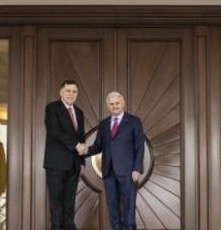By Jamie Prentis.
Tunis, 8 February 2017:
Narrow interests drive many of Libya’s armed groups and there must consensus on the future command of a united Libyan army, UN special envoy Martin Kobler has told the Security Council today. Whilst the formation of the Presidential Guard was a positive step, he added, it was merely a transitional measure and had to be integrated into a combined Libyan army.
“National security institutions, including the police, must be empowered and developed. There are no alternatives. Without a strong army and police, armed groups cannot be demobilized,” Kobler said.
“The citizens of Libya deserve security and an end to the rampant crime and lawlessness,” the UN envoy told the Council in what is thought may be his last report as UN special envoy .
Kobler also said that, with the Libyan Political Agreement (LPA) still to be implemented, 2017 must be the “year of decisions and political breakthrough”.
He noted that many of the meetings he had held revolved around the composition of the Presidency Council and the chain of command in the army, in particular the role of Khalifa Hafter.
Whilst apparent advances had been made in Libya’s economic performance, health services remained inadequate and poor financial management and corruption remained, he further stated.
“The Presidency Council and the government must quickly improve the poor service delivery and tackle outstanding economic challenges,” he insisted.
Earlier this week Kobler attacked EU proposals to repatriate migrants back to Libya, describing conditions in camps in Libya as “inhumane.” He told the UN Council that migrants were extremely vulnerable and suffered in appalling conditions.
Referring to EU investigations as whether they could return migrants to Libya, Kobler said that however understandable the concerns of the neighbouring states and regions were, international humanitarian law and the dignity of migrants took priority.
Ultimately, the LPA had to remain the framework through inclusive dialogue, not resolved through violence, Kobler said. He underlined that, whilst 2016 had seen promising developments, including the ousting of the so-called Islamic State, 2017 remained a critical year in the future of a stable, united Libya.








